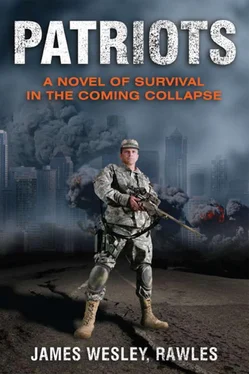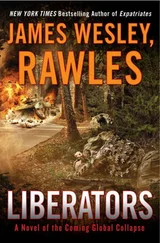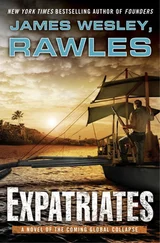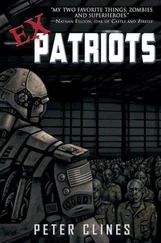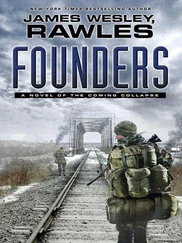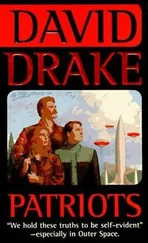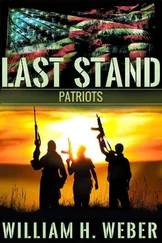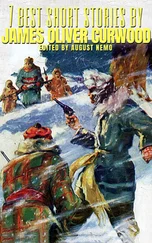The captured APCs and tanks lumbered out of the motor pool and split up. They began a heavy barrage of fire from the 12.7-mm and 14.5-mm guns on the APCs. There was also sporadic fire from the main guns of the M60 tanks.
Both dorms were hosed down liberally. Most of the fire was concentrated at the ends of the buildings, which housed the arms rooms. After a minute of continuous fire, a white parachute flare went up from the “Trojan horse” APC.
A heavily reinforced company of sixty-five resistance fighters, all wearing blue sashes, rushed out of a classroom building across the street and through the open front gates. At the same time, another sixty, also wearing sashes, charged through the breaches in the back fences. The firing from the tanks and APCs stopped. The resistance infantry poured into the barracks, first securing the arms rooms and the C.Q. offices. There was little organized resistance. The Federal soldiers had been completely surprised by the raid. Most were sleeping when the shooting started.
Although most of the Federals kept their loaded small arms at the ends of their bunks, all of their rocket launchers and crew-served weapons were out of reach in the locked arms rooms. The shouting resistance fighters systematically herded the Federals into the cafeterias. Only a few Federals fired at the militia as they cleared the halls. Those that did were quickly cut down. Just three militiamen were killed and five wounded in taking the dorms.
All told, they captured 442 Federal soldiers. The Federals suffered 53 injuries, many of them critical. The militia also captured included the Corps commander and his entire staff. More than 80 Federals were killed in the raid, mostly in the opening “prep” fire. The fighting was over and the fires extinguished by the time the sun crept over the hills in the east.
The original op order called for an occupation of the barracks not to exceed one hour. During this time, they systematically searched for useful logistics and for maps and papers that might have intelligence value. A procession of two-and-a-half and five-ton trucks were backed up to the dorms to load up the captured supplies. As the militias were getting ready to leave and “melt into the hills,” nearby Federal unit commanders started to call in, one after another, through the field telephone switchboard, to ask for their terms of surrender.
Matt Keane at first thought that the calls were a trick. “They want to know how they can surrender? But they outnumber us. This is crazy! They should be pounding us with arty right now.”
Mike Nelson shook his head, and said, “No. Just think about it, Matt. Their headquarters is gone, and their commander is no longer commanding. The snake has been decapitated . For the subordinate units, this is their chance to surrender gracefully. They’ve probably been waiting for an opportunity, and this is the best one that we could have given them.”
Once the first two maneuver units in the Corps surrendered, nearly all the rest—as far north as Coeur d’Alene in the north and Grangeville in the south—capitulated in rapid succession. One field artillery battalion made some trouble. They shelled the downtown and campus areas of Moscow on the afternoon of the raid. Dozens of civilians were killed. But since the battalion’s battery locations were known, a heavy counter-battery MLRS barrage soon silenced them. Then, like most of the other units before them, they capitulated via radio or field telephone. Militia teams were sent out to each unit in APCs and trucks to formalize the surrender and disarming process.
At sunset, Todd Gray was given the honor of lowering the UN flag at the Moscow barracks, and raising the Idaho flag. Once he had raised the flag, he kneeled down and prayed his thanks. Seeing this, the ranks of armed militia-men and disarmed Federals on parade did likewise. It was a solemn and emotional moment.
CHAPTER 32
The Amendments
“Food is power. We use it to change behavior. Some may call that bribery. We do not apologize.”
—Catherine Bertini, UN World Food Program Executive Director, 1997
Continental Region 6—the former United States, Mexico, and Canada—was gradually falling into the hands of guerrillas. Even formerly pacified areas saw increasing resistance, both passive and active. Guerrilla bands were operational as far south as theYucatan peninsula, and as far north as upper Newfoundland. The UN was steadily losing its grip on the region, and could do nothing about it.
A particularly embarrassing incident for the UN came the day that President Hutchings was to give one of his biannual “State of the Continent” speeches. When Hutchings and his entourage arrived at the Fort Knox TV studio in their APCs, they found the studio staff and several MPs attacking two of the building’s steel doors with crowbars and a sledgehammer. An empty tube of “Krazy Glue” cyanoacrylate epoxy was found near one of the doors and bagged as evidence. The lock cylinders of every door were frozen in place.
After resorting to using a cutting torch, they finally got into the building twenty minutes before Hutchings was scheduled to go on the air.
Once inside, the studio staff found some of the inner door locks similarly jammed, but they were less of an obstacle. A couple of quick blows from a sledgehammer opened each door. The staff fumbled with flashlights, trying to determine why the lights weren’t working. They soon found that the saboteur had removed all of the circuit breakers from the main breaker box. The floor cameras had their lenses smashed, but a spare handheld camera from the mobile van was brought in and set up on a tripod. Maynard Hutchings finally went on the air twenty-five minutes late, “due to technical difficulties” and without his usual makeup. In his speech, he glowed about the “outstanding cooperation” shown by the UN Partners for Peace, recent victories over bandits in Michigan and Colorado, and the “rapidly decreasing rates of terrorist acts.” He promised regional elections “real soon.”
The following week, a firing squad from the Fort Knox Provost Marshall’s office executed the TV studio saboteur. He was the thirteen-year old son of an Ordnance Corps major who was stationed at the Fort and lived in nearby Radcliffe, Kentucky. The major and his wife were executed by another firing squad two days later. President Hutchings was quoted as saying, “Parents should be held accountable for their children’s actions.” Throughout the North American continent, a pattern was clearly evident.
Resistance was the strongest, the best organized, and the most successful in rural areas. Unable to wipe out the elusive guerrillas, the UN administration and their Quislings began to concentrate on eliminating the guerrillas’ food supplies.
In areas where resistance was rampant, “temporary detainment facilities” were constructed to house anyone thought to be politically unreliable. Special emphasis was placed on rounding up suspect farmers or ranchers, or anyone remotely connected with food distribution businesses. When farmers were put into custody, their crops were either confiscated, plowed under, or burned.
Bulk food stocks were carefully monitored by the authorities. Despite these efforts, the guerrillas rapidly gained in numbers.
As the war went on, resistance gradually increased beyond the UN’s ability to match it. Every new detainment camp spawned the formation of new resistance cells. Every reprisal or atrocity by the UN or Federal forces pushed more citizens and even Federal unit commanders into active support for the guerrillas. Increasing numbers of commanders decided to “do the right thing,” and support The Document (The Constitution) rather than the Provisional government’s power elite at Fort Knox. Units as large as brigade size were parlaying with the guerrillas and turning over their equipment. In many instances the majority of their troops joined the resistance. County after county, and eventually state after state, was controlled by the resistance.
Читать дальше
